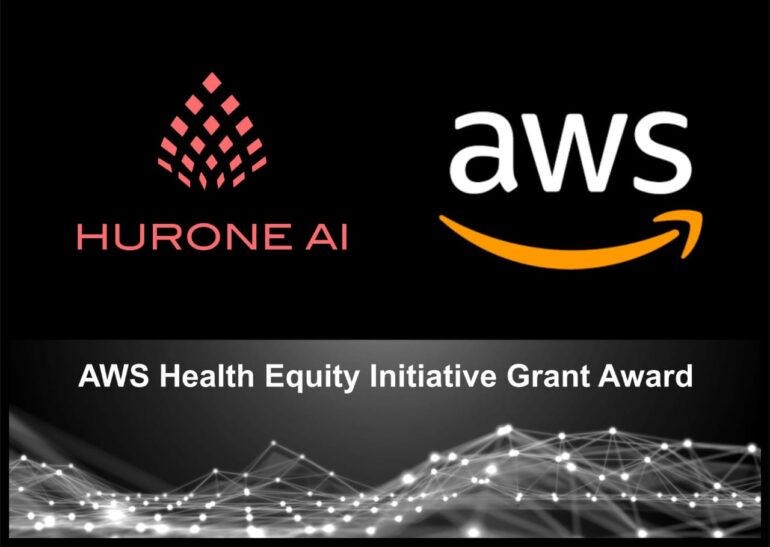TL;DR:
- Hurone AI, a Seattle-based startup, utilizes AI in remote cancer patient monitoring in Nigeria and Kenya.
- Amazon Web Service’s Bedrock tool powers AI models within Hurone’s Gukiza AI toolkit.
- The AI models enable personalized cancer treatment and fast data summaries, addressing the scarcity of oncologists.
- Nigeria faces a high cancer mortality rate, with over 124,000 new cases and 78,000 deaths reported in 2020.
- In Kenya, Hurone’s software supports over 5,000 cancer patients annually, addressing a significant healthcare challenge.
- Gukiza AI’s real-time daфta feed to doctors reduces off-duty calls by 60% and saves oncologists over 75% of their time.
- Hurone AI is part of a $40 million AWS project supporting cancer treatment in developing nations.
- The AI tool is also implemented in Rwanda, offering telemedicine solutions and reducing patient travel distances.
Main AI News:
In the realm of oncology, where the demand for specialized care often surpasses the supply of experts, Seattle-based startup Hurone AI has embarked on a groundbreaking mission. Leveraging the power of artificial intelligence (AI) and Amazon Web Service’s Bedrock tool, Hurone AI is at the forefront of revolutionizing cancer patient monitoring in Nigeria and Kenya.
The Hurone Approach
Hurone AI’s innovative approach involves the development of AI models tailored for oncology care integrated into its cutting-edge Gukiza AI toolkit. In regions like Nigeria and Kenya, where access to oncologists is limited, the impact of this technology is monumental. Hurone’s AI model not only personalizes treatment but also generates rapid patient data summaries, significantly enhancing the precision and efficacy of cancer care.
The Soaring Cancer Challenge
Nigeria and Kenya grapple with alarming cancer rates, making the need for advanced healthcare solutions imperative. In Nigeria, Gukiza AI is undergoing trials at the Zenith Medical and Kidney Center in Abuja, West Africa’s largest kidney cancer treatment facility. The statistics are sobering, with Nigeria ranking among the countries with the highest cancer mortality rates globally, where approximately four out of five cases culminate in fatality. In 2020 alone, there were over 124,000 new cases and tragically more than 78,000 deaths.
Meanwhile, in Kenya, Hurone’s software is making strides at the Jaramogi Teaching and Referral Hospital in Kisumu, a medical hub serving over 5,000 cancer patients annually. Cancer ranks as the second leading non-communicable cause of death in Kenya, accounting for approximately 47,887 new cases and 32,500 fatalities each year.
AI as a Lifeline
Founded in 2021, Hurone AI meticulously trained Gukiza using open-source patient databases, enabling it to discern cancer progression and side effects across various forms of the disease. What sets this AI apart is its ability to remotely monitor patients in what Hurone’s founder, Kingsley Ndoh, terms “underrepresented populations.” The AI seamlessly provides doctors with real-time patient data, an invaluable tool in delivering timely interventions.
The Numbers Speak Volumes
Hurone AI proudly reports that the beta version of Gukiza has slashed off-duty oncology calls by approximately 60% for cancer care teams at partner sites, saving oncologists over 75% of the time typically needed for specific care duties. These numbers underscore the profound impact of AI in streamlining and optimizing cancer care.
A Visionary Partnership
Hurone AI is an integral part of a monumental $40 million AWS project, which has extended free cloud credits to over 90 organizations, all with a common goal: advancing cancer treatment in the developing world. In January, Hurone took a step further by introducing its AI tool to Rwanda’s Breast Cancer Initiative East Africa medical center, serving as a telemedicine solution. This move has significantly reduced the burden on cancer patients who previously had to travel great distances for diagnosis and monitoring.
Conclusion:
The integration of AI-driven cancer care in Nigeria and Kenya, as pioneered by Hurone AI, marks a significant leap forward in healthcare. It not only addresses the pressing need for specialized oncology care but also sets a precedent for AI’s transformative potential in healthcare markets, offering more efficient and accessible solutions to underserved populations. This innovation could pave the way for similar advancements globally, fostering a new era of precision medicine and enhanced patient outcomes.

